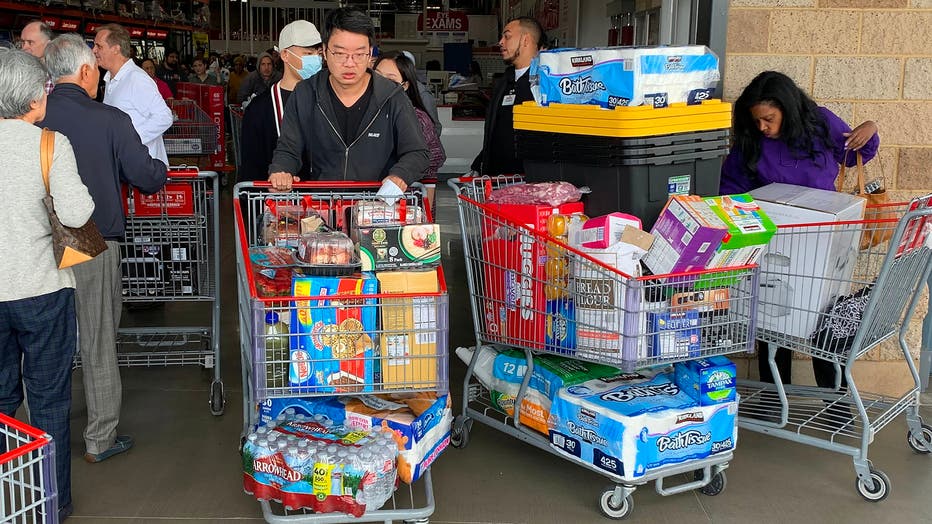State of emergency over coronavirus is not to cause panic; it's to expand resources, receive funding
LOS ANGELES - On Wednesday, California declared a statewide emergency over coronavirus after the first coronavirus death was reported in the state and as six new cases, including a medical screener at Los Angeles International Airport, were confirmed.
Gov. Gavin Newsom said the emergency proclamation is intended to help procure supplies and resources quickly.
Earlier Wednesday, officials in Los Angeles County declared a local public health emergency in response to the increased spread of coronavirus, adding that there were six new cases of the virus in the county, bringing the overall total to seven.
RELATED: L.A. County declares state of emergency amid 7 confirmed cases of COVID-19 coronavirus
When people hear the term "state of emergency" panic instinctively ensues. However, officials are hoping to remind the public that by declaring a state of emergency, cities will receive funds from the state and federal level. The decision to declare a state of emergency is not to create fear, but rather to allow local health agencies more tools and access to respond to this virus.
RELATED: The latest news stories on the coronavirus
“Fear will not drive our response to this virus. Rather, we will prepare and implement our proven prevention strategies to effectively protect the public," said Los Angeles County Supervisor Hilda L. Solis.

People buy water, food and toilet paper at a store, as they begin to stockpile essentials from fear that supplies will be affected by the spread of the COVID-19, coronavirus, outbreak across the country, in Los Angeles, California on February 29, 202
Public concern over the virus is at an all-time high, with supplies flying off the shelves of stores, reports of price gouging and scam products claiming to treat and cure coronavirus.
RELATED: MAP: This is where there are confirmed coronavirus cases in the US and around the world
Although officials with the Centers for Disease Control and Prevention are urging residents to be prepared, they say you're still more likely to contract the flu than coronavirus.
The best ways to prevent the spread of respiratory infections, including novel coronavirus, are:
• Stay home if you are sick. Sick people make well people sick.
• If you have mild symptoms, there may be no need to go to a medical facility to see a doctor.
• Certain patients, such as the elderly, those that are immune-compromised or have underlying health conditions should call their doctor earlier.
• If you have questions, please call the clinic or your doctor before going in. If you do not have a healthcare provider, call 211 for assistance finding support near you.
• Wash your hands with soap and water for at least 20 seconds, especially after going to the bathroom; before eating; and after blowing your nose, coughing, or sneezing.
• Cover your cough or sneeze with a tissue, then throw the tissue in the trash.
• Get immunized against the flu to protect yourself and your family, and reduce the potential strain on the healthcare system, which may be impacted by COVID-19 concerns.
The CDC does not recommend people who are well to wear facemasks.

